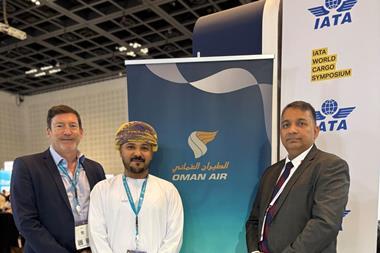
Kenya Airways has named Fitsum Abadi Gebrehawaria, formerly managing director of Ethiopian Cargo & Logistics Services, as its new cargo director
He is expected, the airline said, to play “a pivotal role in accelerating growth across the airline’s cargo division”.
The appointment comes at a time when Kenya Airways is embarking on what it described as “an ambitious expansion plan designed to scale up cargo capacities”.
The airline is eyeing the acquisition of larger freighter aircraft by 2026 to better meet growing demand, which is currently rising at an annual rate of approximately 11% – nearly double the rate seen prior to the Covid-19 pandemic.
“Mr Abadi’s appointment represents a significant milestone for Kenya Airways as we delve deeper into our strategic approach to capitalise on emerging opportunities in intra-African trade and global logistics markets,” informed Allan Kilavuka, group chief executive at Kenya Airways.
“His distinguished record in catalysing cargo market expansion and fostering enduring customer relationships positions him as the ideal leader to guide our division in achieving our most ambitious performance objectives,” Kilavuka added.
Room for growth
Kenya Airways flies over 70,000 tons of cargo a year through its hub at Nairobi’s Jomo Kenyatta International Airport.
Kenya Airways Cargo has an IATA CEIV-certified warehouse at its home hub at Nairobi Airport, which it is expanding to further support rising volumes of ambient, cool and frozen perishables.
Peter Musola, head of cargo commercial at the airline, noted recently: “We are looking at developing dedicated special product handling lanes for products such as meat, fresh fruit and vegetables and flowers within this warehouse development project.”
Kenya is the biggest vegetable exporter in Africa and is also one the world’s most important exporters of flowers.
And on the subject of fleet expansion noted above, Kenya Airways recently reiterated its admiration for Boeing 737-800 freighters, as well as suggested it may acquire widebody freighters at some point in the future.
The airline said last year that it had acquired its two standard-body 737-800Fs because they offered a greater range than the 737-300Fs in its fleet and could help it expand its geographical network.
Speaking during a panel session at Air Cargo Africa in Nairobi in February, Musola said the 737-800Fs are ”really the model that we are looking at”.













